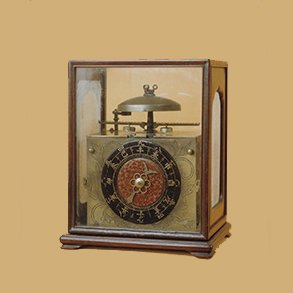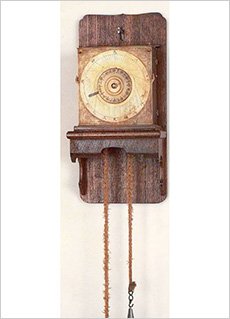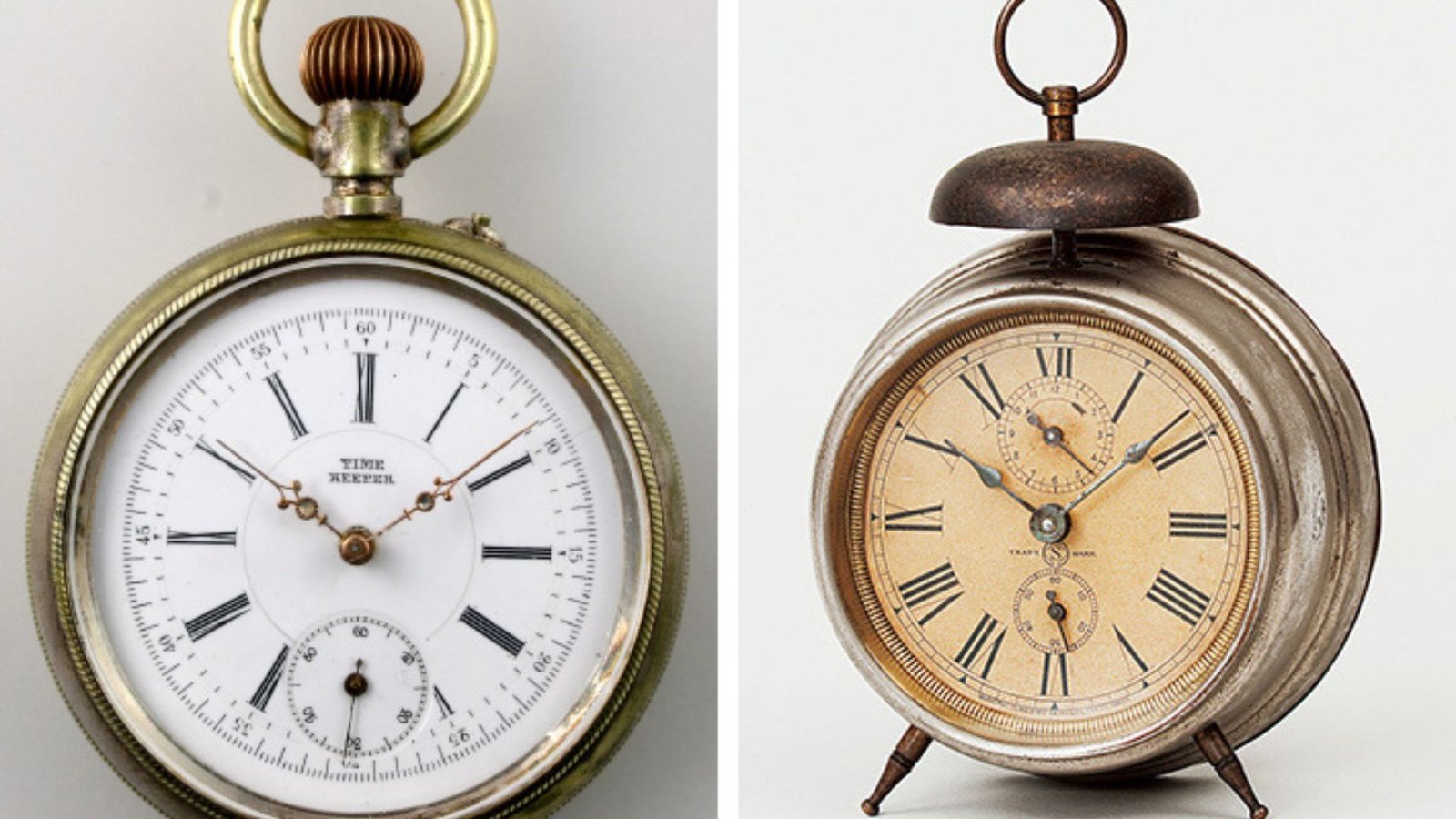Japanese wall clocks are not only functional timepieces but also beautifully crafted pieces of art that can elevate any space. Whether you own a traditional or modern Japanese wall clock, proper maintenance is essential to keep it running smoothly and looking its best. In this guide, we will walk you through the key steps to maintain and care for your Japanese wall clock, ensuring it remains a treasured piece for years to come.
1. Regular Cleaning
First and foremost, dust and dirt can accumulate on your wall clock over time, which can affect its appearance and functionality. To keep your clock clean:
- Use a soft, dry cloth to dust the exterior regularly. Be gentle, especially if the clock is made of wood or delicate materials.
- Additionally, avoid using water or cleaning agents directly on the clock’s surface, as these can damage the finish.
- For intricate carvings or designs, a small, soft-bristled brush can help you clean hard-to-reach areas.
This regular cleaning will keep the clock looking pristine and help prevent dust from entering the internal mechanisms.
2. Protect from Sunlight and Moisture
Furthermore, Japanese wall clocks, especially those made of wood or other natural materials, can be sensitive to environmental factors. Direct sunlight and moisture can cause damage over time. To protect your clock:
- Avoid placing it in direct sunlight, as this can cause the colors or finishes to fade.
- Moreover, keep your clock in a room with stable humidity levels. Excess moisture can warp wooden parts and affect the clock’s movement.
- If you live in a particularly humid or dry climate, consider using a dehumidifier or humidifier in the room where the clock is hung to maintain ideal conditions.
By doing so, you can protect your clock from environmental wear.
3. Regular Winding (For Mechanical Clocks)
If you own a traditional mechanical Japanese wall clock, regular winding is crucial for maintaining accurate time. Here’s how to wind your clock properly:
- Most mechanical wall clocks need to be wound once every 7 to 8 days.
- Additionally, use the winding key that came with your clock. Insert it into the winding holes (usually found on the clock’s face) and turn gently in the indicated direction.
- Be careful not to overwind the clock, as this can damage the internal mechanisms.
For newer, battery-operated wall clocks, simply replace the battery when the clock begins to lose time or stops working altogether.
4. Check the Clock’s Level
Equally important, a wall clock that is not hung properly can run inaccurately. If the clock is tilted, even slightly, the pendulum or other internal components may not function correctly. To ensure your clock is running as it should:
- Use a spirit level to make sure the clock is perfectly horizontal when hung on the wall.
- If needed, adjust the mounting to prevent any tilting.
This simple step will ensure the clock maintains its accuracy over time.

5. Lubricate the Moving Parts
Over time, the moving parts inside a mechanical wall clock may require lubrication to prevent wear and ensure smooth operation. However, this process should be done carefully:
- Use clock oil, which is specially formulated for delicate mechanisms, and apply it sparingly to the pivot points.
- Therefore, it’s recommended to have this done by a professional, as over-lubricating or using the wrong type of oil can cause more harm than good.
Having your clock serviced by a professional once every 5 to 10 years is an excellent way to keep it in top shape.
6. Handle with Care
If you need to move your Japanese wall clock for cleaning or relocation:
- Be sure to handle it with care to avoid damaging any delicate parts or mechanisms.
- If possible, remove the pendulum before moving a pendulum clock to prevent it from swinging and damaging the clock’s interior.
Once relocated, ensure the clock is level and securely mounted before restarting it.
7. Seek Professional Help for Repairs
Finally, if your Japanese wall clock stops working, begins making unusual sounds, or loses time despite proper care, it’s best to consult a professional clockmaker. Attempting to repair complex clock mechanisms without the right knowledge can lead to further damage.
Clockmakers have the tools and expertise to diagnose and fix issues, ensuring your clock continues to run smoothly.
Conclusion
In conclusion, maintaining and caring for your Japanese wall clock doesn’t have to be complicated. By following these simple steps, you can preserve its beauty and functionality for years. Regular cleaning, winding, and environmental care go a long way in ensuring your clock stays accurate and remains a stunning centerpiece in your home. And when in doubt, don’t hesitate to seek professional help to keep this timeless piece in perfect condition.





Alright alright alright, 666game, not gonna lie, it’s pretty addictive. Got a decent selection and it runs smooth on my phone. Give it a shot if you’re bored! 666game
Alright gk88slot, it’s all about the slots, then? Gotta have some killer jackpots and a good variety. Don’t disappoint! Spin to win here: gk88slot
Die Spielermetropole bietet Casinos in allen Größen, Formen und Varianten an. Das Cosmopolitan kann mit einer Tradition von mittlerweile fast 20 Jahren überzeugen und wurde im Jahre
2005 eröffnet. Noch einmal zu frischer Prominenz ist das altehrwürdige Casino zudem durch die eigene eSports-Arena gekommen, die im Jahre 2018 eröffnet wurde.
Eine beeindruckende Welt eröffnet sich hinter den Türen des im Jahre 1963 erbauten Casinos.
Berühmt geworden ist dieses vor allem durch das sogenannte Adventuredome-Zelt, welches Unterhaltung für Kinder und Jugendliche bietet.
Viele Casinomarken arbeiten außerdem mit uns zusammen, um
exklusive Bonusaktionen anzubieten, die Sie sonst nirgendwo
finden. Wir beanspruchen all diese Boni selbst, um sicherzustellen,
dass wir Ihnen ein faires Angebot ohne Hintertürchen und Kleingedrucktes anbieten. Dazu gehören unter anderem Boni ohne Einzahlung,
Cashback, Match-Boni und Freispiele.
Von klassischen Spielautomaten über Dutzende
von Tischspielen bis hin zu einem erstklassigen Sportwettenbereich findest
du hier alles, was das Herz begehrt. Wenn Sie spätabends einen Blick
in diesen Raum werfen, können Sie vielleicht Profis sehen,
die um Millionen spielen. Wir bieten verschiedene Tools und Ressourcen, um sicherzustellen, dass
unsere Spieler ein sicheres und kontrolliertes Spielerlebnis haben. Vulkan Vegas bietet eine Vielzahl von Boni und Promotionen, die Ihr
Spielerlebnis noch aufregender machen. Spielen Sie
Ihre Lieblingsspiele von überall mit der Vulkan Vegas Mobile App.
Casinos ohne Limits bieten daher vor allem mehr Spielraum bei der Einsatzhöhe, aber keine
Garantie für bessere Ergebnisse. Ähnlich wie
1€ Casinos werden auch Online Casinos ohne gesetzliche Einzahlungslimits
für viele Spieler immer interessanter. Sichere Casinos ohne Limit verfügen über ein abwechslungsreich zusammengestelltes Spielangebot mit Spielen von namhaften und häufig ebenfalls lizenzierten Herstellern. Aber auch Limits wie tägliche,
wöchentliche sowie monatliche maximale Auszahlungslimits
oder eine maximale Anzahl von offenen Auszahlungsanträgen solltest du kennen. Dies ist insbesondere dann der Fall, wenn du Tischspiele bevorzugst und in einem der
13 Bundesländer lebst, die dies nicht ermöglichen. Internationale Anbieter – oft als
Casinos ohne LUGAS bezeichnet – verzichten auf diese Beschränkungen und bieten dadurch mehr Freiheit, aber auch mehr Eigenverantwortung.
Ein hoher maximaler Bonusbetrag oder eine hohe Anzahl an Freispielen im Aplauz Casino hört sich zunächst einmal nach einem Top Bonus an. Wir bewerten dabei auch, ob es
bei den klassischen Tischspielen genug Auswahl gibt und
ob vom Casino auch andere Spiele wie Bingo, Keno
oder Rubbellose angeboten werden. Limits wurden im Rahmen des neuen deutschen Glücksspielstaatsvertrages eingeführt.
References:
https://online-spielhallen.de/alles-zur-auszahlung-im-bing-bong-casino-ein-umfassender-leitfaden/
Enhanced by high-definition graphics and responsive interfaces,
the software integration not only elevates gameplay but
also fortifies the casino’s commitment to technological
excellence and customer satisfaction. Utilizing software
from industry-leading providers, the casino ensures each game runs smoothly across various platforms.
These regulatory bodies are stringent in their requirements, involving regular audits and checks that guarantee fairness and transparency in all casino operations.
The ville Casino Townsville operates with utmost adherence to
legal and regulatory frameworks, ensuring all gaming activities are conducted in a secure and ethical manner.
This approach ensures that all players can manage their funds efficiently and securely,
according to their individual preferences.
Two casinos in northern Australia found at high risk of being used for money laundering have been ordered to undertake an external audit.
The operators of the casinos both say they take their obligations seriously and will co-operate with the authorities.
Two casinos in Townsville and Darwin will undertake external audits
of their anti-money laundering measures. In January,
Echo said Jupiters Townsville had limited expansion opportunities and offloading
the casino would allow the company to focus on its Sydney,
Brisbane and Gold Coast properties. “[Jupiters Townsville] is the worst-performing casino in Australia by a long way,” he said.
They are equipped with real-time data feeds, ensuring bettors have
up-to-the-minute information at their fingertips. The immersive sound effects and high-definition graphics ensure that each game is
not just a chance to win prizes but also a deeply engaging entertainment experience.
Additionally, the progressive jackpots present opportunities for life-changing wins, making
each pull of the lever or push of a button a potentially thrilling experience.
References:
https://blackcoin.co/welcome-to-vegasnow-casino-australia-in-depth-review/
Words that can be used instead of ‘key’ and ‘important’ include significant, critical, essential,
vital, fundamental, and pivotal. Some of these words are absolute synonyms, meaning
they have the exact same meaning as “important.”
Other words are near synonyms, meaning they are similar in meaning but not identical.
The word “important” suggests a degree of significance, whereas “crucial” implies something that is absolutely necessary or critical.
Understanding the nuances of these synonyms can help writers and speakers convey significance and
relevance with precision and impact. In this article, we will explore a variety of synonyms for
the word “important” and how they can be used to enhance communication and expression.
These show importance because something is required or you cannot skip it.
Knowing the type helps you pick the best word. If you repeat important too
often, your writing can feel plain.
References:
https://blackcoin.co/gambling-laws-and-regulations-australia-2025/
SkyCrown Casino maintains strict adherence to KYC (Know Your Customer) standards to guarantee a secure gambling environment.
Let’s delve into the advantages and challenges faced by this burgeoning gambling hub.
Curious to see what sets SkyCrown apart in the crowded
casino market? Join Sky Crown today and grab
your welcome bonus to kickstart the adventure.
A good casino keeps things clear and simple, just like SkyCrown does with its welcome bonus of up to AU$3,000 + 225 free spins.✅
6. Look for platforms that support AUD, Neosurf, crypto, and e-wallets like Skrill or
Neteller. Proper Licensing & RegulationA trustworthy casino always operates under a valid gaming license, issued by a recognised authority such
as the Curacao Gaming Authority or Malta Gaming Authority.
Depositing funds at this platform happens without hassle or
delay. Unlike Android version, the iOS app includes Apple Pay integration for instant deposits.
The Skycrown casino app works instantly after installation without additional verification.
References:
https://blackcoin.co/4-reasons-to-avoid-an-online-poker-casino/
OpenAI charges $150 for every million tokens (about 750,000 words) input into
the model and $600 for every million tokens the model produces.
The company claims they are improved versions of what was already
there and that they hallucinate less. Personal data has to be accurate,” said Joakim Söderberg, data protection lawyer at Noyb, in a statement.
It will keep some user interactions within ChatGPT, rather than directing people to external websites. We are not yet sure how long it will take us.while we trust the community will build great things with this model, once weights are… The ChatGPT maker, which initially planned to release the model around mid-July, has indefinitely postponed its launch to conduct additional safety testing. While chatbots are “being used as companions, confidants, and therapists,” the study found “significant risks.” That’s more than double the volume reported by CEO Sam Altman just eight months ago, highlighting the chatbot’s explosive growth.
References:
https://blackcoin.co/baccarat-guide-how-to-play-win-at-baccarat/
casino online uk paypal
References:
https://itheadhunter.vn/
online casinos that accept paypal
References:
duct.co.kr
gamble online with paypal
References:
https://thesecurityexchange.com/employer/streamlining-your-finances-my-experience-with-neteller-to-paypal-transfers/
online casino real money paypal
References:
https://jokakiki.shop/bbs/board.php?bo_table=free&wr_id=227
online casino accepts paypal us
References:
http://best114.net/bbs/board.php?bo_table=free&wr_id=407
paypal casino sites
References:
https://jobsindatacenter.com/employer/payid-banking-at-online-casinos-in-2025-53-casinos-accept-payid/
What i don’t realize is actually how you are no longer really much more neatly-favored than you may be now. You’re very intelligent. You realize therefore considerably in the case of this topic, produced me in my opinion imagine it from so many numerous angles. Its like women and men aren’t fascinated unless it¦s something to accomplish with Girl gaga! Your personal stuffs excellent. Always deal with it up!
Alright alright, 4winbet caught my eye. Looks like a decent place to try your luck. Hope to win something big soon. Click here to check it out!: 4winbet
You have remarked very interesting details! ps nice web site.
I love your writing style really enjoying this website .
I think this is one of the most vital information for me. And i’m glad reading your article. But wanna remark on few general things, The site style is wonderful, the articles is really nice : D. Good job, cheers
**mitolyn reviews**
Mitolyn is a carefully developed, plant-based formula created to help support metabolic efficiency and encourage healthy, lasting weight management.